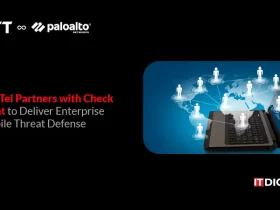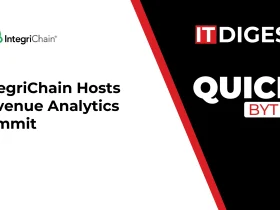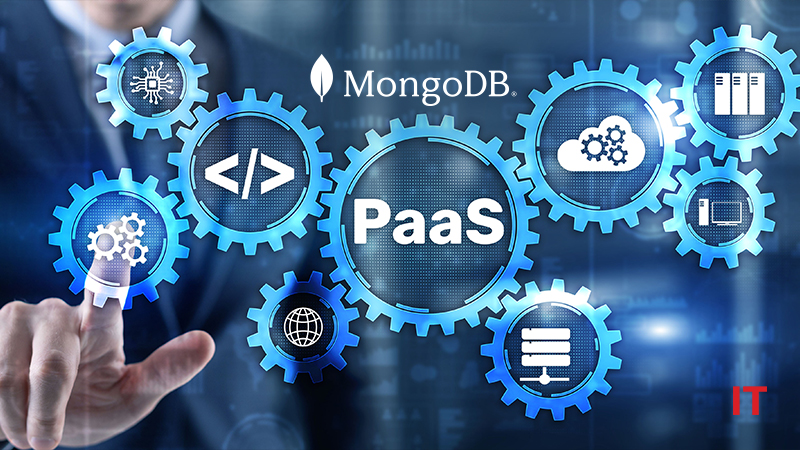MongoDB, Inc., announced that its industry-leading, multi-cloud developer data platform MongoDB Atlas is now available in six additional cloud regions in Canada, Germany, Israel, Italy, and Poland the most widely available developer data platform in the world. With this expansion, MongoDB Atlas is now available in 117 cloud regions across Amazon Web Services (AWS), Google Cloud, and Microsoft Azure to meet the demands of more customers with data residency, availability, and latency-sensitive application requirements. For customers that need ultra-high availability or want to more easily combine services from different cloud providers, MongoDB Atlas is the only globally distributed developer data platform for seamlessly running applications across major cloud providers simultaneously. To get started with MongoDB Atlas, visit mongodb.com/atlas.
“Since introducing multi-cloud clusters on MongoDB Atlas that can run across AWS, Google Cloud, and Microsoft Azure, we have made it easy for customers to control where their data resides by distributing it across major cloud provider regions to meet data sovereignty, regulatory, and performance requirements for their applications,” said Sahir Azam, Chief Product Officer at MongoDB. “Multi-cloud clusters on MongoDB Atlas also give customers the flexibility of seamlessly using cloud services across major providers for their application needs. With the addition of six new cloud regions around the globe, we’re providing greater choice for customers to build modern applications with MongoDB Atlas and to meet the unique demands of their businesses. From customers just getting started migrating and modernizing legacy applications, to those now deploying new generative AI capabilities, we’re providing even more flexibility in where and how they run their workloads using MongoDB Atlas.”
In addition to the broadest choice of available cloud regions, multi-cloud clusters on MongoDB Atlas give customers the ability to combine different services from AWS, Google Cloud, and Microsoft Azure to build, deploy, and run modern applications. For example, with a MongoDB Atlas multi-cloud cluster, organizations can use data from an application running on a single cloud provider and process that data on another cloud provider without the complexity of manually managing data movement. Organizations can also use data stored in different clouds to power a single application or to easily migrate an application from one cloud provider to another as their needs evolve.
Also Read : Celigo Recognized as a Visionary in the Gartner® Magic Quadrant™ for iPaaS 2024
To meet the growing demands of customers—from startups, to enterprises, to governments across the globe—adopting and expanding their use of MongoDB Atlas to build modern, intelligent applications, new available cloud regions include:
- New on AWS: MongoDB Atlas is available in 31 AWS regions globally, now including Canada West (Calgary) and Israel (Tel Aviv), and is integrated with a variety of AWS services such as Amazon SageMaker and can be used with Amazon Bedrock to build AI applications. Customers building applications with MongoDB Atlas on AWS can also take advantage of AI-powered coding assistance using Amazon CodeWhisperer, which is trained on MongoDB code and best practices through a collaboration between AWS and MongoDB. Customers that must meet regulatory requirements for public sector workloads can run MongoDB Atlas in the AWS GovCloud region for mission-critical applications.
- New on Google Cloud: MongoDB Atlas is available in 38 Google Cloud regions globally, now including Germany (Berlin), and is integrated with several Google Cloud services, including BigQuery and Vertex AI for building AI-powered applications. For MongoDB customers in government or regulated industries that want to take advantage of Google Cloud services but run workloads with the most sensitive data, MongoDB Enterprise Advanced is now available on Google Distributed Cloud Hosted (GDCH), and MongoDB is a preferred partner for the solution. MongoDB Enterprise Advanced on GDCH provides customers an air-gapped environment in a private cloud for sensitive workloads that must meet the most stringent data security and privacy requirements—while taking advantage of the performance, reliability, and highly flexible document data model MongoDB customers expect.
- New on Microsoft Azure: MongoDB Atlas is available in 48 Microsoft Azure regions globally—now including Israel Central (Tel Aviv), Italy North (Milan), and Poland (Warsaw)—and is integrated with several Microsoft Azure services, including Microsoft Fabric and can be used with Azure OpenAI and Microsoft Semantic Kernel for building AI-powered applications. MongoDB Atlas Online Archive and Atlas Data Federation are also now generally available on Microsoft Azure, allowing customers to automatically tier Atlas databases to the most cost-effective cloud object storage option while retaining the ability to query data, along with a seamless way to read and write data from Atlas databases and cloud object stores. This dramatically simplifies how customers can generate datasets from MongoDB Atlas to feed downstream applications and systems that leverage cloud storage. MongoDB Atlas Online Archive and Atlas Data Federation are generally available on AWS and will be generally available on Google Cloud later this year.
International Data Corporation (IDC) is the premier global provider of market intelligence, advisory services, and events for the information technology, telecommunications, and consumer technology markets. “With the pervasiveness of generative AI, it is critical that organizations choose cloud-based technology partners that offer them the flexibility needed to innovate and get new application experiences to market quickly,” said Lara Greden, Research Director, Platform as a Service at IDC. “Organizations need to be able to use the best tools from cloud providers to meet their specific needs, and platforms like MongoDB Atlas and its multi-cloud reach help make that possible. As the growth in deployment of cloud-native applications continues, companies that want to gain a competitive edge must be strategic about their choice of platforms that can both work across different types of data and with different cloud providers.”
SOURCE : PRNewswire

































